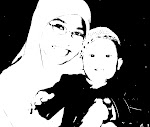
Melakukan kajian saintifik kadangkala mudah, kadangkala begitu mencabar. Keutamaan kepada memberi perhatian terhadap penyelidikan terawal adalah amat penting, perkongsian pengalaman dalam lingkungan limitasi dapat memberi peluang penyelidik baru meneliti penambahbaikan terhadap kesinambungan sesuatu penyelidikan.
Tetapi apa yang merisaukan saya ialah terhadap satu kenyataan yang pernah saya dengar daripada seorang senior yang telah pun memegang PhD suatu ketika dahulu. Katanya; tiada yang benar-benar jujur dalam melakukan kajian. Adakah anda juga berpendapat begitu? Atau mereka mengakui adanya ketidakjujuran dalam diri mereka sendiri? Saya kurang pasti.
Ada yang akan berasa tidak selesa dan berasa amat tersinggung dengan kenyataan tersebut jika mereka seorang penyelidik yang benar-benar komited. Jika anda seorang penyelidik yang beretika dan menghormati penyelidik lain saya pasti, anda tidak akan meragui kredibiliti para penyelidik lain dalam melakukan penyelidikan mereka. Apa kata anda?
Tetapi sekiranya beliau benar..... apakah realitinya? From time to time, however, allegations of misconduct do arise. What would you say?

Essential to the mission of the academic community is a shared commitment to scholarly values, intellectual integrity, and respect for the ideas and work of others.from a website about violation in research (good to quote for the benefit of all new researchers)
Saya mengagumi para penyelidik yang bukan semestinya kajian mereka harus memberi impak terlalu hebat tetapi mereka yang tidak berniat berselindung terhadap penemuan baru malah memberi ruang kepada penyelidik lain memberi pandangan. Itulah yang sepatutnya saya rasa.
Hmmm... tiada yang terlebih baik daripada muzakarah.
wallahu a'lam




No comments:
Post a Comment